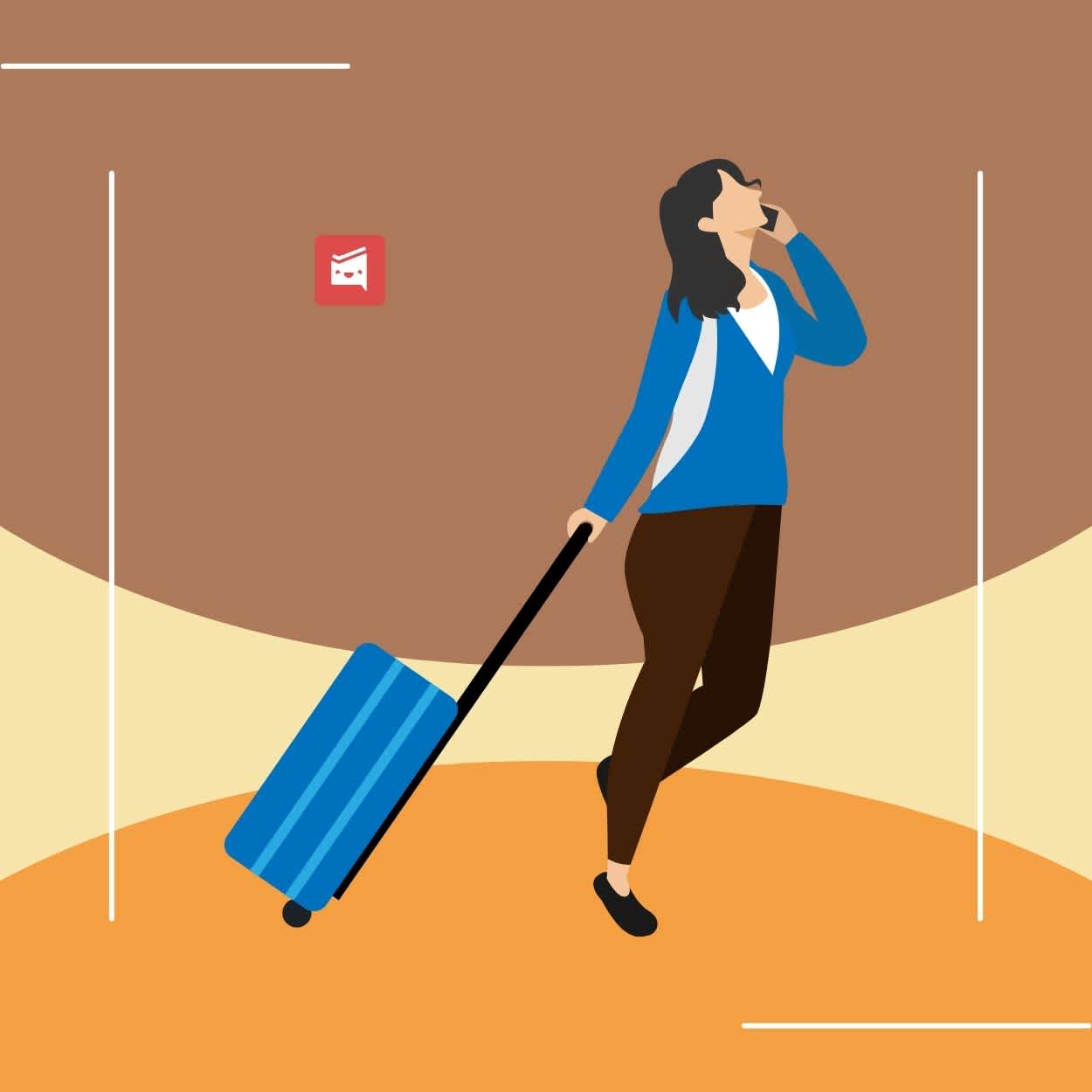Mobile Mastery: Strategies for Staying Efficient on Frequent Business Travels
ByJulian Gette
Workast publisher

Workast publisher
As business travelers, we all know the challenges of staying efficient and productive while constantly on the go. With the rise of technology and mobile devices, staying connected and getting the job done even while traveling has become more accessible. However, not all strategies are created equal.
This guide will discuss some tried and tested tips for mastering productivity on your frequent business travels. From delegating tasks to learning remote work etiquette, we've got you covered.
Traveling for work can be exciting, but it does pose a few challenges, especially when it comes to having a dedicated workspace that allows you to concentrate on essential tasks. We often have to make do with less-than-ideal spaces such as noisy cafes and airports with unreliable internet service. This can lead to working in uncomfortable positions or distracting environments, ultimately hindering productivity.
To combat this, you must leverage hotel rooms, co-working spaces, and cars or trucks as mobile workspaces. You should also invest in essential equipment such as a reliable laptop with long battery life, noise-canceling headphones, a portable Wi-Fi hotspot, and a compact, ergonomic keyboard. Utilize car mounts or trays for your computer and secure storage solutions for documents and supplies to maximize space efficiency and minimize distractions while working on the go.
With these tools, you can seamlessly transition between different environments, optimizing productivity by transforming your vehicles and other temporary spaces into functional offices.
We all want to be the superhero who can juggle multiple tasks and projects, but let's face it - we're only human. Time is of the essence on business travels, and trying to do everything yourself will lead to burnout. Do your best to delegate tasks and consider hiring an assistant or outsourcing specific projects if you need to. This frees up your time to focus on high-priority tasks that require your personal touch.
You must also maintain clear communication channels with your team, providing detailed instructions, deadlines, and support to ensure successful task delegation and completion while away.
Before embarking on a corporate trip, create a detailed itinerary, including travel arrangements, meeting schedules, and designated work periods. However, you should allow for buffer time between flights and meetings to handle unforeseen circumstances or catch up on tasks.
Having internet can make or break your job productivity, so research connectivity options at your travel destinations beforehand. Consider investing in a data plan or purchasing a local SIM card to ensure you can stay on top of your tasks.
If you need more time, partnering with a reliable travel management company simplifies booking procedures and grants access to exclusive deals. These companies can also help you find comprehensive travel insurance that ensures financial protection against unforeseen events like flight cancellations, medical emergencies, or lost luggage, offering peace of mind and minimizing disruptions to business schedules.
As a frequent corporate traveler, you should familiarize yourself with remote job productivity etiquette to enhance communication, collaboration, and efficiency. Inform your colleagues or clients of potential delays in response times due to travel schedules and explain your availability during the trip. Practice courtesy by keeping virtual meetings on time, avoiding distractions and background noise during calls, and giving detailed agendas to participants in advance.
Avoid micromanaging or overworking yourself while away from the office, and ensure you aren't consistently overwhelmed and exhausted. It's also crucial to be flexible and adapt to your team members' working styles, understanding their unique challenges while remote. You don't have to be physically present in the office to collaborate and stay connected with your team. Take advantage of technology and use project management tools like Trello or Asana, communication platforms like Slack or Microsoft Teams, and video conferencing software like Zoom or Skype to collaborate and stay updated on projects. This allows for efficient task distribution, seamless communication, and real-time collaboration, regardless of location.
There's no denying that business trips can be exhausting, and downtime is essential for recharging. However, it doesn't mean you should use this time frivolously. You can also maximize downtime during flights, airport layovers, and car rides by catching up on emails, reviewing documents or presentations, and planning upcoming meetings.
You can also use time management apps like Toggl or RescueTime to track your productivity and identify areas for improvement. This method will help you stay productive and avoid the stress of rushing to complete tasks at the last minute.
To create a productive daily routine while traveling, plan for breaks to recharge and avoid burnout. Schedule time for self-care measures like exercise, meditation sessions, or exploring new sights during off-hours. Also, consider dedicating one day in your business trip itinerary for leisure activities to rejuvenate the mind and body before returning to work. Making a to-do list for the day can also help you stay organized and focused without the anxiety or stress of forgetting a task during your leisure time.
Establishing personal and work time limits is vital to prevent exhaustion and becoming overwhelmed. Create designated hours while on business trips and stick to them as much as possible. Inform your team members of these schedules, including when you will be unavailable for meetings or tasks due to personal commitments or breaks. It's essential to disconnect from work during off-hours, allowing yourself to recharge and focus on individual activities without being constantly available for tasks.
These strategies can help you stay efficient, focused, and efficient during your frequent business travels. With the proper preparation, delegation, planning, and tools, you can minimize disruptions to your schedule and make the most of your time on the go.
